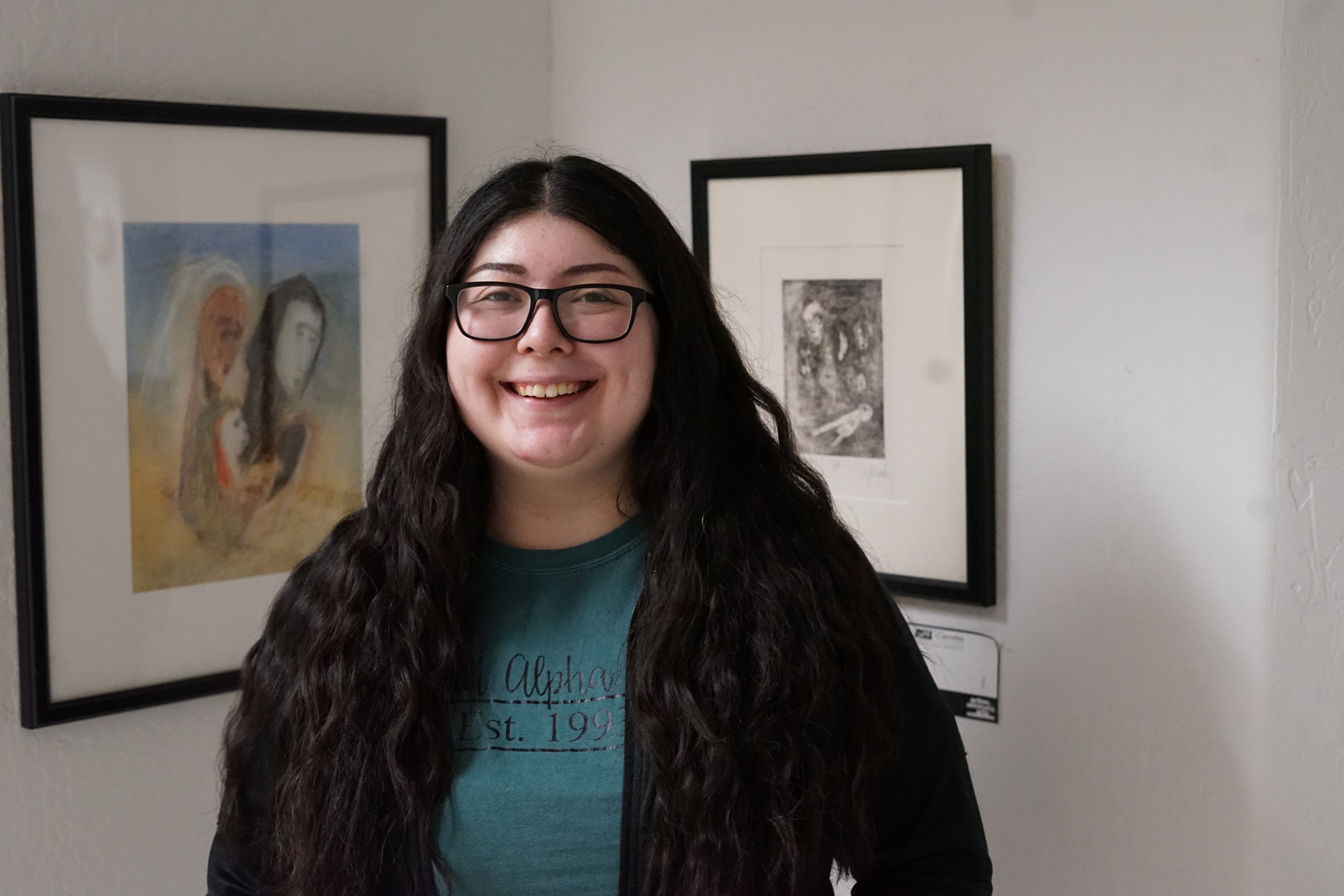
Giving aid to African human trafficking victims sharpens student’s career focus toward helping others to be heard
Karla Chicuate was intellectually acquainted with the morally evil practice of grooming, abducting and selling human beings for labor or sexual exploitation when she traveled in January to west Africa.
After all, she had been working as an educator with the city of Tempe’s Sexual Relationship and Violence Department for about a year and a half when her 10-day excursion began, and she intentionally chose the assignment to work with women and children who had endured human trafficking.
Her trip to Ghana was part of a study-abroad experience through ASU’s School of Criminology and Criminal Justice (CCJ) and the School of Social Work’s (SSW) Office of Sex Trafficking Intervention Research (STIR).
But, upon arriving, the CCJ junior and AmeriCorps member discovered just how much she had to learn about the realities of human trafficking and how deeply ingrained it is in the region’s culture.
One might tend to think of trafficking as only involving stealing children from parents who would never give them up voluntarily. But Chicuate said many of the impoverished families she encountered were taken advantage of by traffickers who would arrive in their villages and towns with offers to take the children to far-away boarding schools or to learn a trade, such as fishing.
Poor families with many mouths to feed mistakenly believe these opportunities represent a path out of poverty for their children, she said.
“It turns out to be really tragic,” said Chicuate, who said during her time visiting three different communities she observed more labor trafficking than sex trafficking. Boys would be taught to hunt and fish, or build, and the girls taught to sew and cook.
“They’d work in terrible conditions and didn’t get paid many times. The families were not informed. The work is often dangerous,” she said. “Sometimes going into the water to fish gets them cut or burned. The youngest I encountered was 9 years old.”
She had to proceed slowly, learning to understand the culture and how different it was from her own. Chicuate and her fellow visitors also needed to earn the trust of the children, who were timid at first with the strangers.
“They were afraid at first to speak, but as soon as they saw their teachers talking to us, they felt a little safer, then they clung to us and couldn’t get enough of us,” she said.
Chicuate and other visitors were not allowed to ask traumatic questions of children, but merely to listen. She said she was able to speak personally with seven different children.
“I had to go in with a certain amount of patience, to understand their culture compared to ours,” she said. “We had some little trainings, a bit about their language and background, their perceptions about sex education and violence and what it was like to grow up in that country.”
Chicuate helped conduct workshops to help the local families deal with their emotions. She gave out free menstrual products sponsored by Days for Girls to the young girls and women, teaching them about consent to sexual relations and to feel good about their bodies rather than feel shame.
Bandak Lul, a project director at STIR, helped Chicuate prepare for the trip to Ghana.
At the start of each semester, each student interns at one of several U.S. agencies working in the anti-human trafficking movement, followed by the trip to Ghana to work with human trafficking survivors at Challenging Heights, a Ghanian non-governmental organization, he said.
Lul said the time students spend in preparation and in Ghana provides skills training that enables students to become advocates for human trafficking victims
“Karla really impressed us with her ability to articulate and practice the knowledge she acquired in the classroom setting into real-life situations while in Ghana,” he said.
Looking back on what she called an unforgettable experience, Chicuate said she felt hopeful.
“I feel a solace inside knowing that while we can’t save them all, there is a program out there making a difference in these kids,” she said. “Also, I came back with this much knowledge that I can put toward my future career. I want to go into some sort of violence prevention area, whether in criminal justice or social work, to give voices to those who feel silent.”
Written by Mark J. Scarp, media relations officer, Watts College of Public Service and Community Solutions.